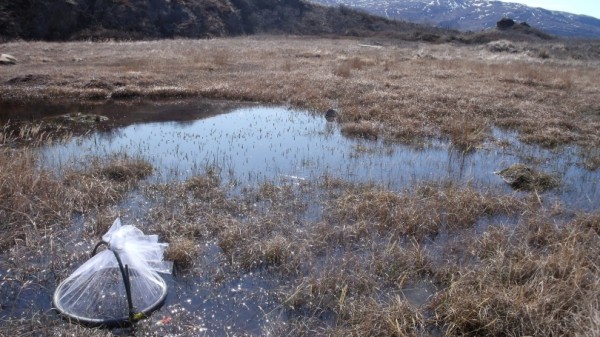If there's one thing good about rising temperatures in the Arctic region, it's good for mosquito populations as they thrive in warmer climate.
Scientists reveal that increasing temperatures in the northern polar region can allow Arctic mosquitoes to propagate more quickly and emerge faster from their pupal stage, quickly expanding numbers where they prey on nearby caribou population.
These new findings present unpredictable consequences of climate change that can drive ecosystems to adapt and change, affecting sensitive regions such as the Arctic where these mosquitoes reproduce in shallow tundra ponds during springtime that are formed by melting snow.Researchers have examined mosquito populations found in the ponds of Kangerlussuaq, Greenland for this new study.
Scientists then tracked the number of mosquitoes along with their various life stages. Additional laboratory experiments were conducted to measure how temperature affects how mosquitoes develop over time.
The findings revealed that if ever Arctic temperatures would rise by 2 degrees Celsius which is the level that a U.N. panel has predicted for Arctic warming in this century, mosquitoes will have a 53 percent increased chances of developing into a full adult.
Researchers reveal that mosquitoes are now emerging two weeks sooner than ever before where this accelerated growth causes less time for the mosquitoes in the tundra ponds before they could be devoured by other insect predators such as diving beetles.
According to ecologist and lead author of the study Lauren Culler from Dartmouth College's Institute of Arctic Studies, in effect of these biting insects, caribou have been forced to make their way to the tops of windy ridges as there are fewer ponds and mosquitoes there, although the food there may be scarce and low in quality.
Since there are more mosquitoes now, more adults are flying around to search blood that increases the intensity of insect harassment on larger animals in the region. Culler adds that caribou health will decline if these animals spend more energy fleeing from these insects than foraging for higher quality food.
Even if the mosquitoes have a short lifespan, this warming in the Arctic can transform the way they reproduce when they begin to emerge too early when the caribou is not even around the tundra region, migrating to higher ground. Also if winters are unpredictable, the freezing and thawing of these ponds can disrupt the biology of Arctic mosquitoes and their development.
This new study is published in the journal Proceedings of the Royal Society B: Biological Sciences.


